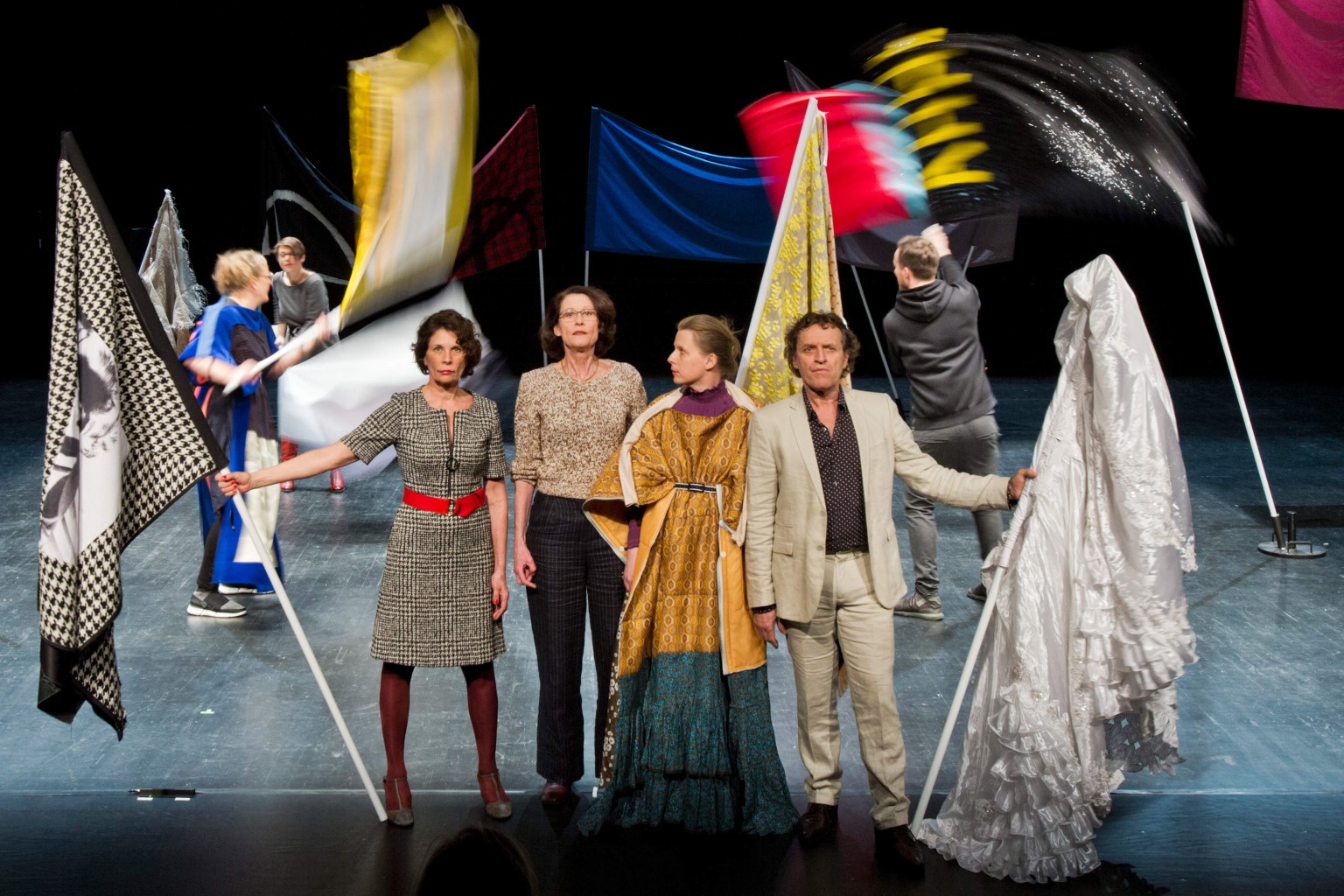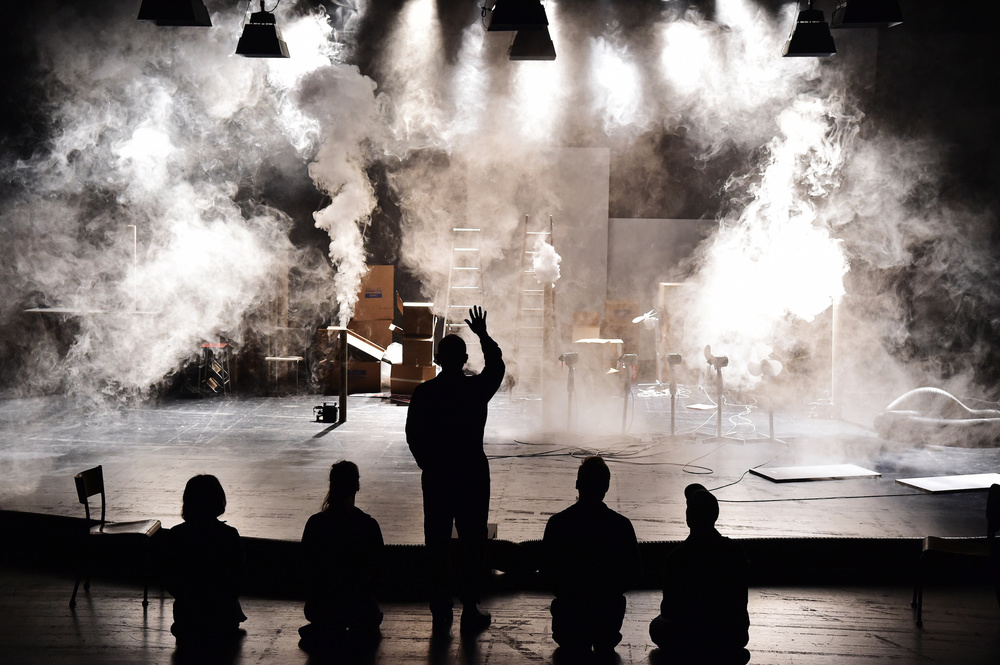A constructive rant about performance, patriarchy and privilege.
I have a confession to make. Before I became stage editor at Exberliner Magazine, I had never heard of the Theatertreffen. Shock, horror! In the German-speaking theatre world, there’s hardly an honour more prestigious than receiving an invitation to those two balmy theatre-filled weeks in May. It’s undoubtedly a milestone of any career, a nod of acceptance from the gatekeepers of the theatrical establishment. But the problem is that not everyone makes it past the gate and the homogeneity of selections certainly raises an eyebrow. I’m not saying Ersan Mondtag, Simon Stone and Ulrich Rasche aren’t brilliantly talented directors – they are and I’m genuinely devastated I won’t get a chance to see Mondtag’s Das Internat. But when the same few (mostly male) names crop up year after year from a pool of over 400 productions (and a theatre landscape of even more), I become somewhat sceptical. Especially so, when other voices seem glaringly absent.
This year, the Theatertreffen can boast three female-directed productions among its invitees. This beats two-and-a-half last year and one the year before that and is technically an accurate reflection of an industry in which 30 percent of directors are female, according to the Deutscher Kulturrat. But can we really call this progress? When it comes to choosing the 10 most-notable productions of the past Spielzeit, it seems absurd to cling on to this gender disparity. What’s more, could the Theatertreffen’s (tepid) reception beyond the theatre industry in fact be linked to the festival’s homogeneity?
#TheatertreffenSoGerman?
In the USA, voices criticising the Academy Awards have grown loud over the past two years. Under the hashtag #OscarsSoWhite, critics have lambasted a lack of diversity among the nominees and winners. If we critically reflect on this year’s TT-invitees, can we honestly say that they are a fair representation of the diversity of the Germanosphere? Would the hashtag #TheatertreffenSoMale be appropriate? What about #TheatertreffenSoGerman? Around a quarter of Germany’s population has a Migrationshintergrund: five million Muslims call Deutschland home, alongside three million “Aussiedler”, one-and-a-half million Turks, over one million refugees and the third-largest Jewish population in Europe. Looking at this year’s selections, one might even be surprised to learn that half of Germany’s population is in fact female. But why is this important?
Theatre should be a space in which we can critically reflect on society and its constructs. It lends an aesthetic voice to our very humanity with all its foibles and ills. We can use it to deconstruct identity, challenge norms and tackle the status quo. But only if our institutions are a fair reflection of society that produces them, not to mention taxpayers that fund state theatres. There is a danger of losing perspective of the wider world that theatre should be made for in the first place. Where is the play on right-wing resurgence? The performance on global climate change? The piece on post-migrant experience? These aren’t just notable issues. They’re burning issues. In this respect, She She Pop’s Oratorium stands out from this year’s crowd. It also just happens to be the performance I am most looking forward to.

Anyway, you were promised a constructive rant so here are three suggestions for a more inclusive Theatertreffen. Drumroll, please.
1. A 50 percent female* quota at the Theatertreffen. I do not believe men consistently outnumber women on the lists of invitees because they make better theatre. I do believe that self-selection alone is not enough to combat patriarchal structures also inherent in the theatre world. We need to promote women, trans* and non-binary directors, playwrights and performers to make the theatre landscape more equal together. And yes, that means women* over 35, too. The Pro Quote Bühne campaign is already calling for gender equality in the theatre industry and I look forward to the discussions at this year’s Burning Issues conference. A common counterargument is that the Theatertreffen’s about quality, not quotas and the disparity among the invitees merely reflects a male-dominated theatre landscape. I say: we have to start somewhere, so why not at the top? Let’s lead by example.
2. A Bechdel test for theatre. A film passes the Bechdel test if two women talk with one another about something other than a man. For extra credit, they also have to have names. Half of all films fail. And what of theatre? As journalists, we should be asking ourselves this in our coverage. We could even add an extra hurdle: a play fails if the female lead in a male-directed play is running around naked on her own for no discernible reason other than to feed a hungry male gaze.
3. Promote post-migrant perspectives. At least in Berlin, there is no shortage of (post-)migrant voices in theatre. We can and should give them more visibility through recognition and funding. What about an annual post-migrant perspective prize at the Theatertreffen?
A more inclusive Theatertreffen is first and foremost fair. But it would also broaden the festival’s appeal and expand its relevance beyond the bubble of fervent thespians. And while I wholeheartedly welcome this year’s Burning Issues conference, burning issues are precisely that: on fire! And that means they shouldn’t just be discussed at a fringe event. They should take centre stage.
